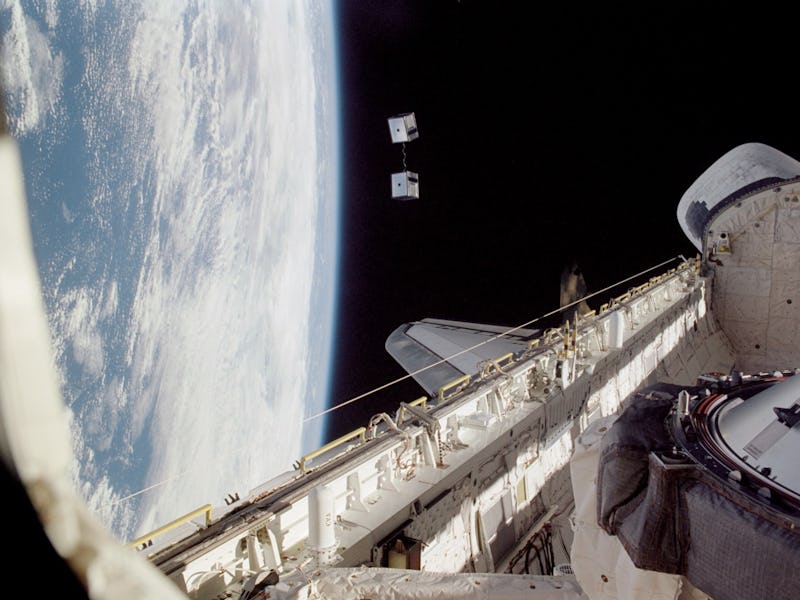Private space technology company Orbital ATK sued the Pentagon’s Defense Advanced Research Projects Agency (DARPA) last Tuesday over plans to give a rival firm a contract to build satellite-repairing robots for a government-funded mission.
The Virginia-based company filed a complaint with the U.S. District Court for the Eastern District of Virginia, asking court to halt DARPA’s work on the Robotic Servicing of Geosynchronous Satellites (RSGS) mission, which would promote and develop robotic satellite repair technology.
DARPA chose rocket manufacturer Space Systems Loral (SSL), which is a subsidiary of Canada’s MDA Corp., to award a $15 million contract for building robots for repairing government and commercial satellites.
“It clearly demonstrates the success of our strategy to bring the benefits of our commercial business to a broader audience and to grow our business with U.S. government work,” Howard Lance, CEO of SSL MDA Holdings, said in a statement last Thursday.
According to Jared Adams, DARPA’s chief of media relations, the RSGS public-private effort is a first for DARPA in the space-servicing domain, and DARPA’s selection of SSL has been submitted for review by the Defense Department’s Under Secretary of Defense for Acquisition, Technology and Logistics.
In the lawsuit, Orbital ATK argued that DARPA “intends to give away this technology to a foreign-owned company for that company’s sole commercial use.” In addition, Orbital ATK said RSGS would “waste hundreds of millions of U.S. taxpayer dollars to develop robotic satellite servicing technology for which DARPA has admitted there is no present U.S. government need and that NASA and the U.S. private sector — specifically the plaintiffs — are already developing.”
On the other hand, DARPA says RSGS would lower the risks and costs of operating in orbit.
“Servicing on orbit could provide significant cost savings compared to current practices and a major advantage to the security of both commercial and Government space assets,” Gordon Roesler, DARPA’s program manager for RSGS, said in a statement last Thursday.
RSGS, Orbital ATK argues, directly competes with Orbital ATK’s Mission Extension Vehicle, which is in development and provides life extension services to satellites. The company argues this violates the 2010 National Space Policy, which says that the government must “refrain from conducting United States government activities that preclude, discourage, or compete with U.S. commercial space activities.”
Currently, the Mission Extension Vehicle is backed by at least $200 million from investors, and Orbital ATK had set up a production facility in Northern Virginia. The company planned to launch the Mission Extension Vehicle next year.
In the past, Orbital ATK has worked with the U.S. government and NASA on various space projects. On Monday, the company announced that the U.S. Air Force awarded it a contract to provide support services for a multipurpose satellite.
This isn’t the first time DARPA was asked to stop RSGS. Two weeks ago, three Republican members of Congress wrote a letter to the Pentagon saying RSGS violates the National Space Policy because it’s competing with a private company.
“We urge you to promptly review this program to ensure its compliance with the 2010 National Space Policy,” the letter to DARPA Acting Director Steven Walker said. “As Acting Director, you should stop any further action on RSGS until the review is completed.”
Walker replied saying that the commercial systems under development would not be as capable as RSGS, and he reviewed the mission, saying that it complied with the National Space Policy.
DARPA also said that a NASA satellite repair program called Restore-L does not have the same degree of autonomous control as RSGS. Restore-L was also awarded to Space Systems Loral and is planned to launch by 2020.
